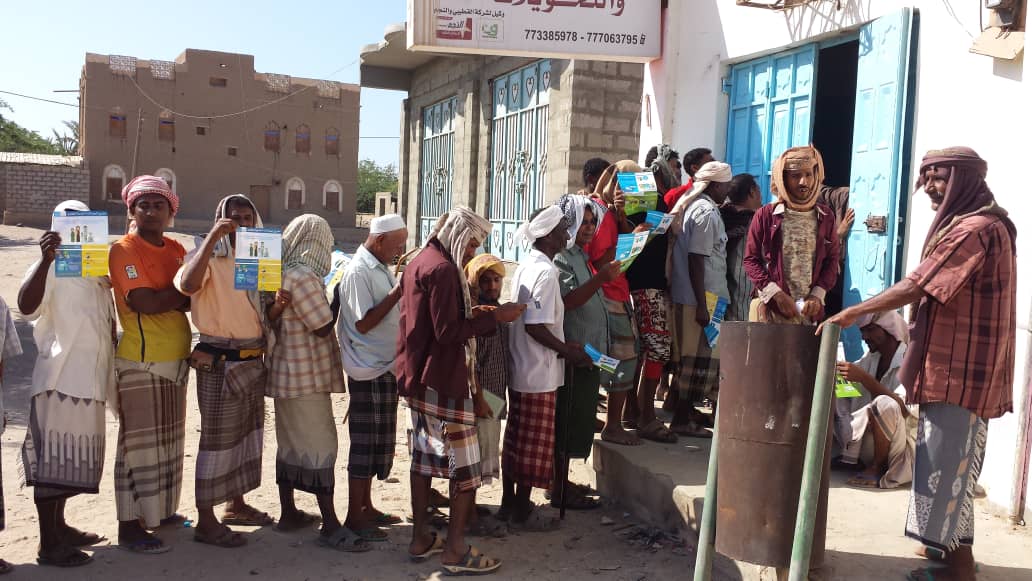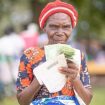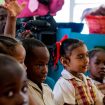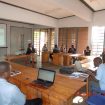Publication: January 2024 The proposal highlights the significant influence of the baby boomer generation on the world, particularly in the latter half of the 20th century, and emphasizes the challenges faced by older adults today. With an increase in life expectancy driven by medical advancements and changing lifestyles since 1950, opportunities for the aging population, aged 55 to 80, are diminishing. The proposal stresses the urgent need to address issues affecting the mental health and well-being of older adults. The proposal, presented by SOPROEN, focuses on four key aspects: access to necessary services, employment opportunities, knowledge and wisdom transfer, and the formation or access to social networks. The primary goal is to enable the elderly population to lead active lives, enhance their satisfaction and well-being, and continue contributing to society by transmitting their experience and knowledge. The text emphasizes a holistic approach, considering biological, psychological, and social factors, as well as cross-cutting aspects like culture and spirituality in the lives of the elderly. It suggests a new paradigm where older adults could serve as service providers and find meaning in their lives through selfless service or personal growth activities like volunteering. The proposal aims to outline the feasibility of implementing mechanisms to generate opportunities for the elderly, ultimately improving their quality of life and expectations. Download Article ...
Publication: December 2023 The contemporary challenge confronting social protection (SP) systems revolves around the intricate task of meeting the diverse needs of individuals and households. Whether these needs are straightforward or complex, engaging with beneficiaries remains a formidable challenge for existing social programs. The deficiency lies not only in the provision of supply-driven programs but in the absence of mechanisms to facilitate the resolution of individual needs. The proposed solution recognizes the inadequacies of current SP systems and advocates for a paradigm shift. Rather than solely supporting impoverished and vulnerable households through predetermined programs, the focus shifts to stimulating demand among citizens. The proposal introduces a Single Window Communication System (SWCS) coupled with Linkages & Referrals (L&R) as a comprehensive mechanism to bridge the communication gap between citizens and the SP system. The heart of the solution lies in actively involving citizens in addressing their unique challenges. The SWCS acts as a centralized platform facilitating communication between individuals and the various institutional actors within the inclusive SP system. This system encourages citizens to actively seek out and choose programs and service providers that align with their specific needs. It moves beyond a passive approach by providing a nudge, information, and guidance to empower individuals in making informed choices. The SWCS is not just about information dissemination; it incorporates Linkages & Referrals to implement precise and appropriate actions for each individual. This involves understanding individual problems and connecting citizens with suitable solutions, whether from public, private, nonprofit, religious, or other third-party service providers. The proposed mechanism envisions inclusivity by allowing households that are not traditionally classified as poor and vulnerable to participate. It acknowledges that emergencies and disasters can thrust previously stable households into situations of poverty and despair. Citizens’ interactions with SP programs and service providers are identified as threefold: maintaining eligibility for benefits, addressing individual needs, and obtaining general or specific information. The SWCS, with its rules and protocols tailored to different types of needs, emerges as a dynamic and responsive solution. The proposal suggests a phased implementation of the SWCS, beginning with a region and expanding nationwide after thorough review and adjustments. In essence, the proposed solution aims to transform the traditional SP approach by actively engaging citizens, stimulating demand, and fostering inclusivity through a dynamic Single Window Communication System linked with precise Linkages & Referrals. Download Article ...
Publication: November 2023 Since the beginning of the South American mining/oil era, especially the oil industry, environmental impacts have increased in certain protected areas, oil spills occur near communities, causing violations of their rights and increasing their difficulties to live in a healthy and ecologically balanced environment. Compensation schemes for those affected by oil spills have become a controversial issue for several reasons: Environmental and social damages such as water pollution, the destruction of ecosystems and the loss of biodiversity has occurred, which has affected local communities that depend on natural resources for their subsistence, generating negative social and economic impacts; Complexity of determining the extent of the damage caused and its monetary value; Determining liability for an oil spill and the legal obligations of oil companies can be disputed; Companies may argue that they have complied withcurrent rules and regulations, while affectedcommunities may believe that adequate measures havenot been taken to prevent and mitigate damage; Economic and political interests; Affected communities may face barriers to accessingjustice and asserting their rights; and, The lack of social protection (SP) instruments todetermine the urgent needs of those affected from the demand side; among others. Objective of this technical note: Propose methodological improvements to develop better compensation schemes oriented to raise the standard of living of communities located in the catchment area of mining activities, mainly oil exploration. Through this proposal it is intended to reduce the conflicts between these communities and mining companies to achieve a better coexistence between the two actors. First, as part of the initial diagnostic to identify needs, it is vital to identify the basic needs of both the household and the community. Proper field instruments are applied dividing individual needs into different categories like level of urgency and frequency, types, and others. In the same way, appropriate instruments are applied for the identification of the community’s needs. Upon these tasks, critical and frequent needs are chosen to later design the different types of interventions as part of the compensation scheme. Second, each intervention must have specific and clear objectives goals at community and individual levels. With respect to individual related interventions, SOPROEN proposes the design and implementation of services that allow households to lower their levels of uncertainty, anxiety and frustration. It should be noted here that achieving higher levels of well-being does not imply greater spending or use of resources, but rather distributing them according to the availability that the company has for these purposes. The difference, with this proposed work methodology with respect to what is currently happening, is that oil company’s resources will be spent in a way that aims to both increase the levels of well-being of the households in these communities as well as to increase the community well-being as a whole. Third, it is required to implement a monitoring and evaluation system that allows those responsible for the oil company to be given feedback with lessons learned so that they can make adjustments to the progress of the compensation packages. The clear advantage of this proposal is that the oil company is acting at both the community and individual levels. As such, community members would think twice before making any complaint, they are risking the individual benefits are receiving.
Publication: September 2023 The general objective of a social registry in the social protection sector is to promote inclusion of poor and vulnerable populations that otherwise are excluded. That is why social registries are considered as inclusion systems. They provide a gateway for households to register and be considered for inclusion in one or more interventions without having the fear that they could be excluded. Although not all countries have social registries, they have grown in the past 20 years mainly among middle- and low-income countries. However, most countries could not implement the suggested integrated and dynamic inclusion social registries. Whenever they were created, they developed their social registries as a self-contained database management system without any association to other programmes or administrative agencies, implying little to no interoperability with other systems. Also, countries tended to operate registries with fixed lists of registrants and beneficiaries not allowing new households to register while the new census sweep happens. The typical approach is to conduct en-masse registrations or census sweeps every 4 to 8 years, data remains the same between census sweeps. Fiscal space constraints, low administrative capacities and lack of political will are the classic justifications to choose this approach and not the one recommended by donor agencies. SOPROEN wants to suggest a feasible strategy to move social registries that are now static and self-contained to at least partially dynamic and integrated following a gradual and smooth process given the low administrative capacity and fiscal space constraints. Basically, the aim of this paper is to introduce a strategy to reduce the aging speed of the current data captured and stored from prior census sweeps and currently being used. and upcoming data to be captured and stored from the next census sweep of the social registry by cleaning data, partially updating household information, and adding new households using appropriate protocols and instruments.








